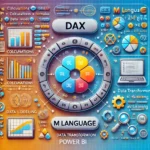In the fast-paced world of software development, test automation has become a fundamental component of ensuring the quality and efficiency of modern applications. Among the various test automation tools available, Selenium and TestComplete stand out as two popular choices, each offering unique features and advantages. In this blog post, we will conduct a thorough comparison of Selenium vs. TestComplete to help you make an informed decision about which tool best suits your testing needs.
Selenium
Selenium is an open-source test automation framework widely used for web application testing. It provides a suite of tools and libraries that allow testers and developers to automate web browser interactions and validate expected behaviors. Selenium supports multiple programming languages, including Java, Python, C#, and others, making it a versatile choice for teams with different language preferences.
Key Features of Selenium
a. Cross-Browser Compatibility: Selenium allows running tests across various web browsers like Chrome, Firefox, Safari, Edge, and more, ensuring comprehensive compatibility testing.
b. Flexibility: Selenium provides the flexibility to integrate with other testing frameworks, CI/CD tools, and reporting systems, enhancing the overall test automation process.
c. Open-Source Community: Being open-source, Selenium has a vast and active community, resulting in continuous updates, bug fixes, and a rich library of extensions.
Visio vs BPMN: Comparative Analysis for Business Process Management
Use Cases for Selenium
- Testing web applications across multiple browsers and platforms to ensure consistent performance.
- Integrating test automation into existing development and deployment pipelines due to its versatile nature.
TestComplete
TestComplete is a commercial test automation tool developed by SmartBear. It is designed to cater to various testing requirements, including web, mobile, desktop, and API testing. TestComplete boasts a user-friendly GUI-based approach to test automation, making it suitable for both technical and non-technical testers.
Key Features of TestComplete
a. Multi-Platform Support: TestComplete can be used to test web, desktop, mobile applications, and APIs, providing a comprehensive solution for testing different types of software.
b. Record and Playback: TestComplete offers a record and playback feature, allowing testers to create test scripts without the need for extensive programming knowledge.
c. Extensive Object Recognition: TestComplete’s powerful object recognition capabilities enable easy identification and manipulation of UI elements, reducing test maintenance efforts.
Use Cases for TestComplete
- Automating tests for diverse platforms, including web, mobile, and desktop applications, within the same tool.
- Facilitating quick test script creation through record and playback functionality for non-technical testers.
Comparison
Test Automation Focus
- Selenium: Primarily focused on web application testing and browser automation.
- TestComplete: Designed to cover a broader range of test automation needs, including web, mobile, desktop, and API testing.
Skill Requirements
- Selenium: Requires proficiency in programming languages to create and maintain test scripts.
- TestComplete: Offers a user-friendly approach, enabling testers with limited programming knowledge to create automated tests using the record and playback feature.
Platform Support
- Selenium: Mainly targets web applications, though it can be extended to mobile testing with additional tools like Appium.
- TestComplete: Supports web, mobile, desktop, and API testing, making it a more versatile solution.
Both Selenium and TestComplete are powerful test automation tools, each catering to distinct testing requirements and skillsets. If your project revolves primarily around web application testing and you have a team of developers comfortable with programming languages, Selenium is a reliable choice. On the other hand, if you need to automate tests across different platforms or have non-technical testers who can benefit from a GUI-based approach, TestComplete may better suit your needs.
Ultimately, the decision between Selenium and TestComplete hinges on your specific project requirements, the types of applications you need to test, and the skillset of your testing team. Consider your objectives, resources, and the ease of implementation to make an informed choice that will contribute to the overall success of your test automation efforts.






